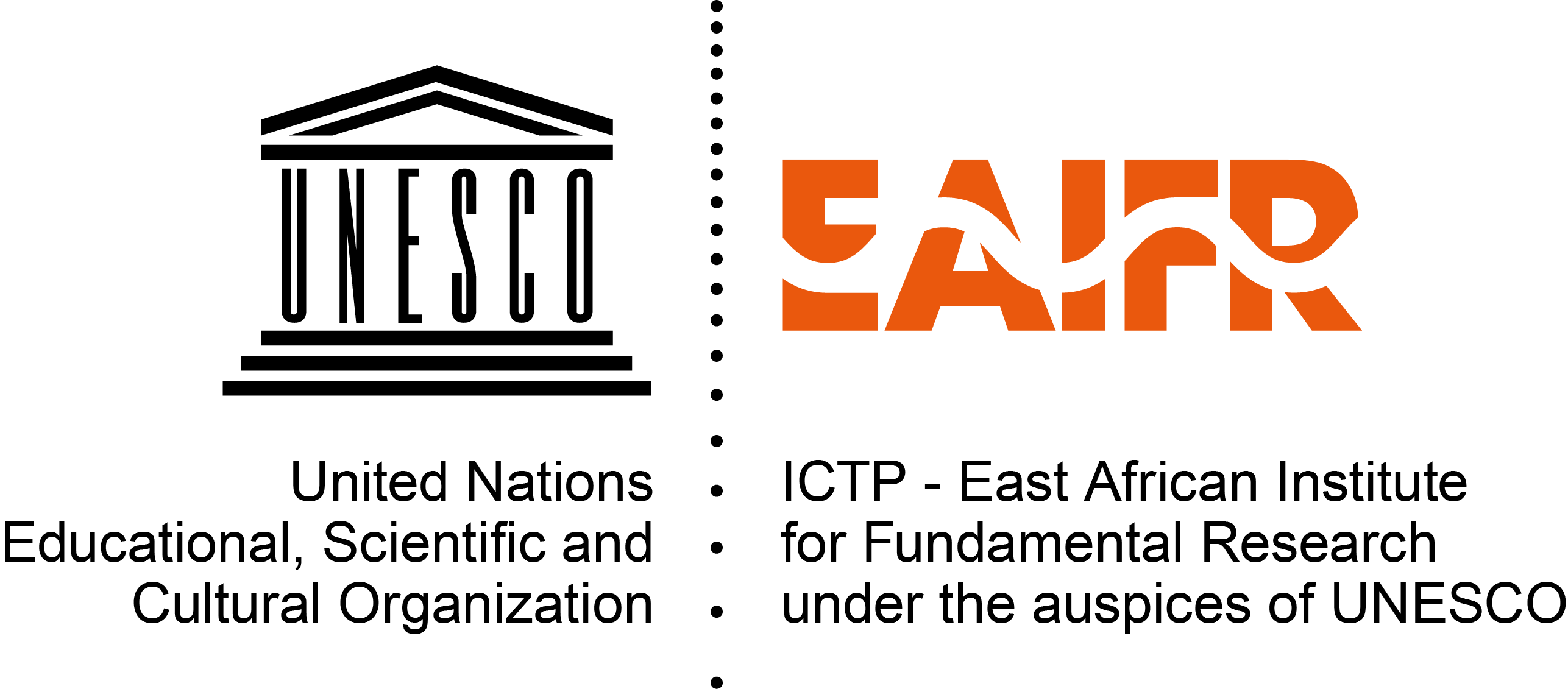ICTP-East African Institute for Fundamental Research
KIST2 Building CST
Nyarugenge Campus
University of Rwanda
Kigali, Rwanda
Molecular Quantum Dynamics Seminar on 4 March
Talk by Fabien Gatti of the Université Paris-Saclay, France
EAIFR is pleased to welcome Dr. Fabien Gatti of the Institut des Sciences Moléculaires d'Orsay at the Université Paris-Saclay, in Orsay, France for a Condensed Matter Physics seminar. Held on 4 March at 16:00 Kigali time, the seminar is titled "Deciphering the role of Quantum Effects in Chemistry."
 Many molecular processes are impacted by strong nuclear quantum mechanical effects, and numerical simulation of the quantum behavior of molecular systems is complicated and challenging. This seminar will explore several examples and methods, highlighting the presence and the exploitation of quantum effects in molecular processes such as the spectroscopy of water and protonated water clusters, and the physicochemistry of molecules on metal surfaces.
Many molecular processes are impacted by strong nuclear quantum mechanical effects, and numerical simulation of the quantum behavior of molecular systems is complicated and challenging. This seminar will explore several examples and methods, highlighting the presence and the exploitation of quantum effects in molecular processes such as the spectroscopy of water and protonated water clusters, and the physicochemistry of molecules on metal surfaces.
All are welcome to join the seminar, registration here.
The full abstract: Many molecular processes, ranging from fundamental to applied problems, are known today to be impacted by strong nuclear quantum mechanical effects, including phenomena like tunneling, zero point energy effects, quantization of the vibrational states, non-adiabatic transitions, quantum phase transition, quantum interferences. Recent success in helping to understand experimental observations in fields like heterogeneous catalysis, photochemistry, reactive scattering, optical spectroscopy, or femto- and attosecond chemistry and spectroscopy underlines that nuclear quantum mechanical effects affect many areas of chemical and physical research. The correct theory to describe the corresponding dynamics is Molecular Quantum Dynamics [1,2]. In contrast to standard quantum chemistry calculations, where the nuclei are treated classically, molecular quantum dynamics can cover quantum mechanical effects in their motion. Even though, the numerical simulation of the quantum behavior of molecular systems including both electrons and nuclei is very challenging, new strategies have been developed to extend the studies to systems of increasing size. In particular, we present here several applications of the Multi-Configuration Time-Dependent Hartree method (MCTDH) [3,4,5] to the understanding and the control of molecular processes involving quantum effects. MCTDH can be seen as a time-dependent MCSCF approach for the nuclei where nuclear wavepackets are propagated on one or several potential energy surfaces. Several examples will be presented highlighting the presence and the exploitation of quantum effects in molecular processes such as the spectroscopy of water and protonated water clusters, physicochemistry of molecules on metal surfaces. We will also illustrate the possibility to treat very large systems with the Multi-Layer MCTDH approach to describe biological systems in liquid phase.
Download the poster.



